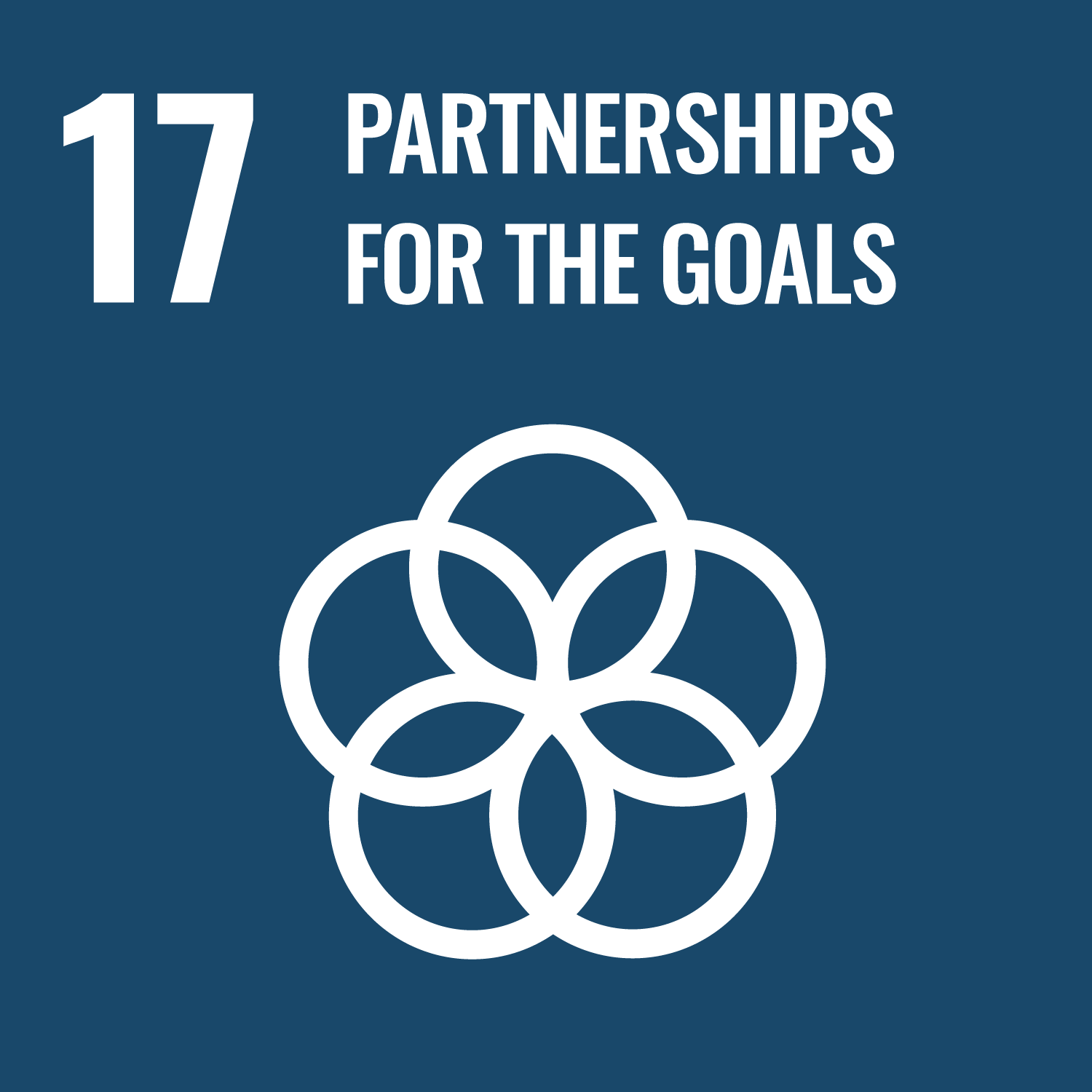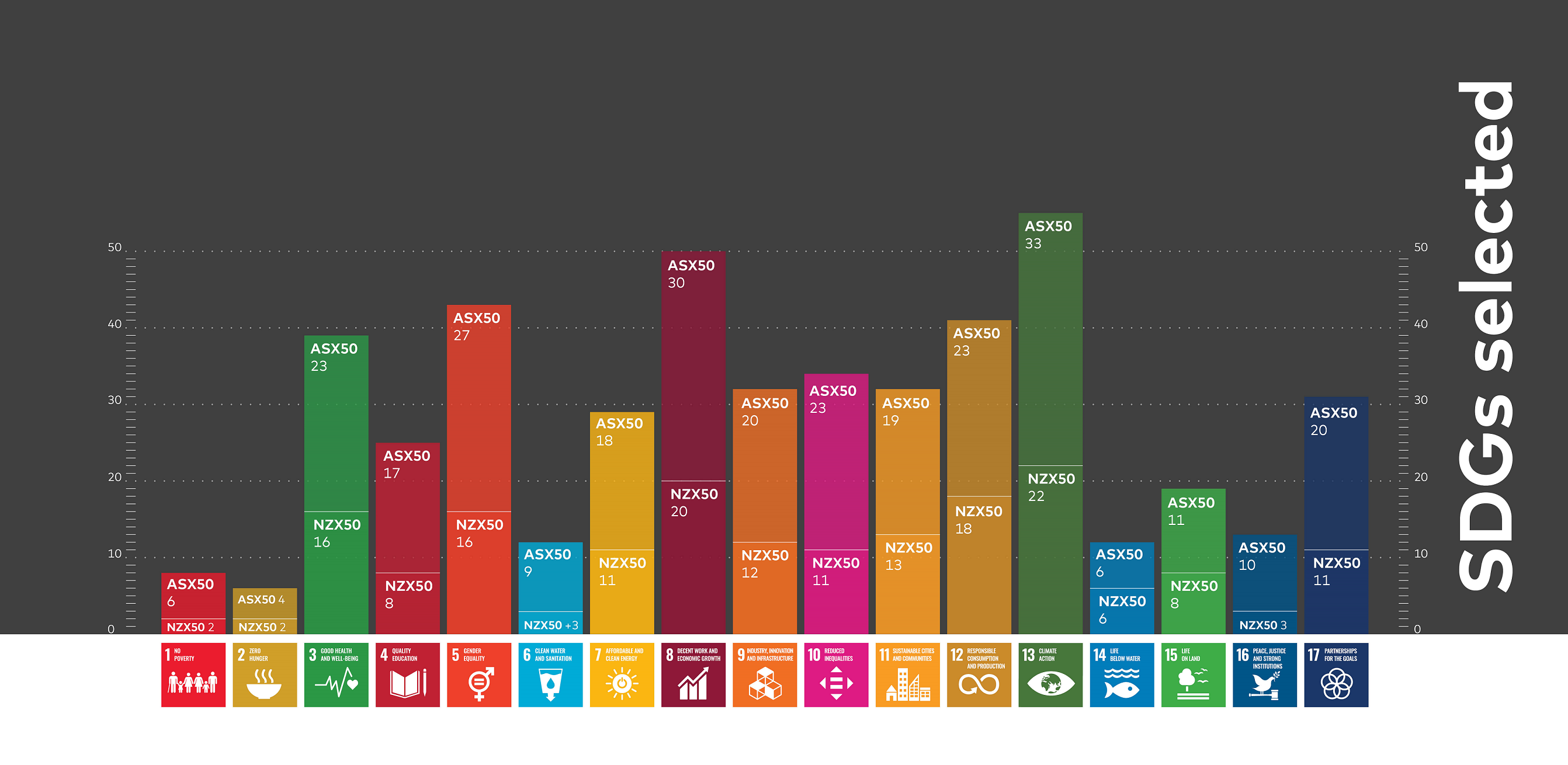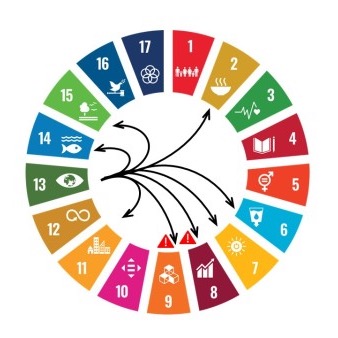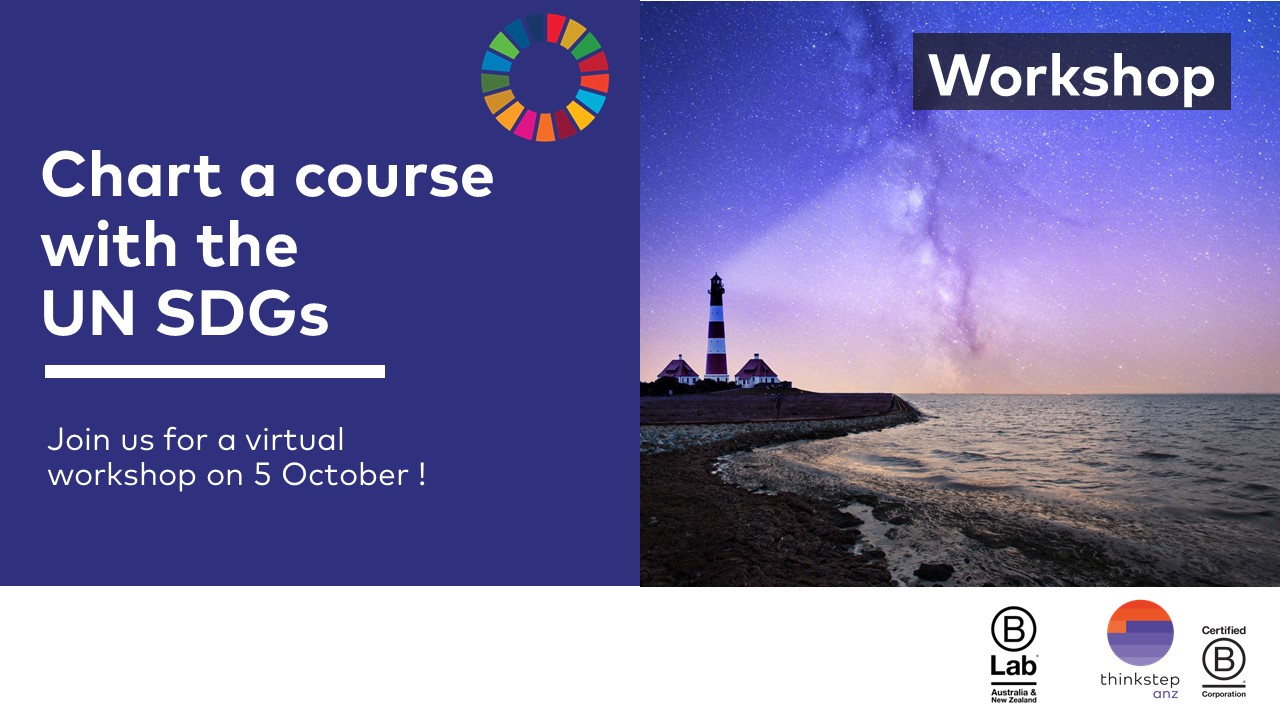At thinkstep-anz, we think Sustainable Development Goal 17, Partnerships for the Goals, offers the ideal first stop if your organisation wants to incorporate the SDGs into your sustainability strategy. SDG 17 is a valuable guide if you want to make an impact beyond your immediate sphere of influence, while encouraging partners and other stakeholders to prioritise positive impacts as well.

Sustainability today means doing more than limiting our harmful impacts on people and the planet. With ever increasing pressures on our climate, biodiversity, natural resources, and our communities, we need to strive for continuous improvement by maximising our positive impacts instead. To achieve this, we can no longer afford to operate independently. Partnering to share knowledge between organisations and across sectors helps to bring about meaningful change faster and with much broader reach.
All 193 countries of the United Nations pledged their commitment to the 17 Sustainable Development Goals (SDGs) in September 2015, signalling that sustainable development is a universal issue requiring a global response. Within this pledge lay the ambitions of non-state actors too.
The SDGs have been embedded into corporate sustainability strategies because they help organisations to act on, and report against, a globally recognised, easy-to-understand framework of sustainability targets.
In turn, businesses and not-for-profits have been crucial to realising the targets set out in the SDGs.
Partnerships demonstrate commitment to progress
Aligning with SDG 17 demonstrates your organisation’s readiness to collaborate for positive change, remain accountable, and encourage impacts beyond your sector. In fact, by simply exploring environmental and social initiatives with other parties, you are already operating in the spirit of SDG 17.
Findings from thinkstep-anz’s SDG Status Report indicate that SDG 17 is increasingly important to the top 50 listed companies in Australia and New Zealand (see Figure 1 below). This can be due to a general increase in SDG reporting, with companies identifying partnerships already in action or in the pipeline to strengthen their reporting. However, there are also growing examples of businesses taking on new activities and building new partnerships to increase their impact. Some businesses use strong industry collaborations to enhance their impacts, such as infrastructure operator Transurban co-founding the Renewables Council Australia and joining the Infrastructure Sustainability Council. Others, like seafood company Sanford, have prioritised community engagement and sponsorship, for example through their ongoing support for the Graeme Dingle foundation. Both avenues demonstrate how SDG 17 can manifest differently on the ground.

Figure 1: The number of times each SDG was selected by ASX/NSX 50 companies. Source: SDG Status Report, think step-anz
Today, consumers and investors expect to see companies doing the right thing. By positioning your business among its community — whether that be an industry association or local neighbourhood — you are showing that there is more to your organisation than the bottom line.
Memberships and associations expand your reach
SDG 17 is a core SDG for thinkstep-anz and it reinforces our approach to sustainability. We belong to a network of passionate sustainability experts and businesspeople in New Zealand and Australia. We actively engage with the sustainability community on both sides of the Tasman, from associations and working groups, to businesses, government, and academics; we are fortunate to be able to share our knowledge and learn from some of the best innovators and business leaders in the region.
Our membership with organisations like B Corp and Ace Hub provides a platform to promote sustainable business practices. The Climate Leaders Coalition, for example, is a group of 105 signatories taking climate action by “measuring and publicly reporting on their emissions”. These memberships hold us accountable on our social and environmental performance, matching the expectations of our key stakeholders, whether they be our clients, corporate partners, or our team.
These memberships also enable us to build on our role as facilitators and thought leaders in sustainability. As founding members of organisations like the Materials & Embodied Carbon Leaders’ Alliance (MECLA) and the Life Cycle Association of New Zealand (LCANZ), we actively contribute to conversations on big sustainability issues. We use our expertise in areas like carbon reduction and life cycle assessment to increase awareness, grow technical capacity, and improve methodologies. Best of all, we are able to build long-lasting and effective relationships, working together in the name of climate action, sustainable production, and social good.
Promoting and progressing the SDGs through SDG 17
The beauty of the SDGs is that they provide a holistic approach to sustainability — they are interconnected. For instance, while many organisations focus on SDG 13: Climate action, by reducing emissions and developing clean or renewable technologies they are contributing to better health (SDG 3), promoting innovation (SDG 9), and limiting ocean acidification (SDG 14).

Figure 2: How SDG 13 influences the other SDGs
Focussing on SDG 17 offers you the opportunity to progress diverse sustainability issues with your partners and suppliers. Responsible procurement frameworks are a great way to mobilise positive change through the different stages of the value chain. By prioritising suppliers that support your environmental and social values, you can encourage a much wider range of partners to shift the dial on those issues. This means working with companies that have similar values and are willing to work to comply with preferred supplier requirements — not just companies that already meet the requirements.
Through procurement, you have a prime opportunity to transform your industry. You will need to collaborate closely with your suppliers, have open conversations about your expectations, and prioritise products that meet high environmental and social standards. Environmental Product Declarations (EPDs), carbon neutral certifications, or Forest Stewardship Council (FSC) certification are great starting points.
Better together
Companies take up the SDGs and their associated targets to help meet expectations around their role in tackling the biggest challenges of our time. From sustainable production and consumption to climate change action, workplace equality, community engagement, and food security, consumers and investors increasingly want to see companies doing the right thing.
SDG 17 proposes that you need not carry the burden of achieving ambitious sustainability targets alone. In our view, the business community can be the biggest driver in sustainable development by working together to achieve those ambitions, sharing knowledge, and collectively raising expectations on what sustainability initiatives can deliver.
Join our workshop on the SDGs

In the spirit of SDG 17 and following B Lab’s celebration of the SDGs, we are excited to take our SDG workshop online. Chart a course with the SDGs is an interactive workshop designed to guide organisations on incorporating the SDGs into their strategy. Over an hour, you will learn how to identify and prioritise the SDGs that are most relevant or material to their business.
We have been running this workshop for several years and have seen our participants achieve great things with the SDGs.

